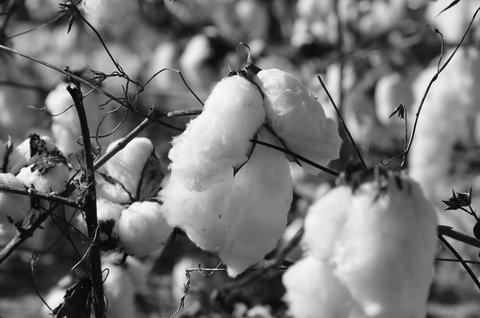
AAFA responds to report on forced labour
Brands are under pressure to stop selling products made in Xinjiang and to stop selling products made from cotton grown in the territory.

30th July 2021
Knitting Industry
|
United Kingdom
Report summary
Allegations of serious human rights abuses in Xinjiang, an autonomous territory in the north-west of China, are posing a challenge for the major brands. Xinjiang is home to 12 million ethnic Uygers who, it is alleged, are being subjected to human rights abuses by Chinese authorities.
Brands are under pressure to stop selling products made in Xinjiang and to stop selling products made from cotton grown in the territory. However, Xinjiang accounts for an estimated 85% of China’s raw cotton production and for more than 20% of the raw cotton grown globally.
Boohoo--an online women’s fashion apparel and accessories retailer based in Manchester, UK--has been accused in the past of failures of corporate social responsibility (CSR) by underpaying its workers but in June 2021 it was announced that the company was refusing to source clothing made from cotton grown in the territory and that it will grow its own cotton in Pakistan.
However, H&M--the world’s third largest clothing retailer--based in Stockholm, Sweden, has found itself in a dilemma. In October 2020 it stated in a press release that it was deeply concerned by reports that ethnoreligious minorities in Xinjiang were being subjected to forced labour and discrimination but in March 2021 it was attacked in a heated social media campaign in China which claimed that the company was spreading lies about China and boycotting cotton grown in Xinjiang.
H&M store fronts on Chinese e-commerce platforms were removed, physical store locations disappeared from Chinese digital map services, Chinese celebrity endorsers announced that they were breaking ties with the company and landlords evicted H&M from some of its 505 Chinese stores.
The company has sought to calm the waters by removing the press release from its website, by announcing via Chinese social media that it was not taking a political position and that it greatly valued its Chinese customers, and by issuing a new English language press statement which did not mention Xinjiang or forced labour but stressed the company’s continuing commitment to the China market.
It is likely, however, that the hands of the major retailers may soon be forced--at least in the US market. In July 2021 six US government agencies issued a Xinjiang Supply Chain Business Advisory to highlight the fact that there were heightened risks for businesses with supply chain and investment links to Xinjiang, given the entities complicit in forced labour and other human rights abuses there and throughout China. And in the same month, legislation banning the importation of all goods from Xinjiang was approved unanimously by the US Senate.
Buy this report
'Talking strategy: addressing the corporate social responsibility (CSR) challenge posed by sourcing in Xinjiang'
11 pages, published in July 2021
Report price: Euro 275.00; US$ 365.00
Reports are supplied in PDF format only via email and can be purchased by credit card or via PayPal. Alternatively, readers can email their order and we will invoice accordingly and send their report by email upon receipt of payment.
To buy this report, please select one of the buttons below or email [email protected].

Business intelligence for the fibre, textiles and apparel industries: technologies, innovations, markets, investments, trade policy, sourcing, strategy...
Find out more